"The current leisure model reproduces the practice in the workplace"
- He moved to Athens to make his master's thesis. He was not able to do a PhD there: his specialty disappeared with government cuts. However, the 2010 crisis surprised him in Greece and learned that global capitalism can easily destroy the welfare state.

Jon Las Heras (Vitoria, 1987)
He graduated in Economics from the Carlos III University of Madrid, but it was the Institute of Economic Sciences and Self-management that opened up his ideas. The Greek university owes you money because it does not guarantee you the studies you have paid. He was a PhD student in Manchester and is a professor at the UPV. He says that the way of understanding the economics of faculties is limited. Maybe that's why he says he's not an economist.
I entered your UPV page. In presenting yourself, you say that the research of work is about catching the potential of the human being.
Yes, it is. What's striking about you?
What does the job have to run over? Or what do we talk about when we talk about human potential?
Work is what humans do to consciously relate to our environment. In short, we organize our environment to meet our needs and thereby transform ourselves. We're not the same before or after work: we've been able to do something, and there's a transformation. The work is all the effort we make to transform our environment and carry out our metabolism. If you let yourself ask questions about it, you'll be surprised.
Where does the potential of society enter? The question is that
we can ask ourselves individually, but the answer is collective. We're here because one or more individuals have helped us to be or not be here.
Capitalism sells us the opposite idea: you can only hacerlo.El an individual
is not an abstract free subject: it is the momentary expression of the human species. The question is how you relate to other human beings to develop your potential, or to question things, or to invent new goals. The ideological framework of today's society is individuality. Robinson Crusso is one of the economic models taught in economics schools. In fact, on an island there is a white man who manages his work and his leisure. That's not real. A man on an island, under those conditions, would die. For example, you can go to live on a mountain tip or a lost corner, but then, if you need a doctor, you go to Osakidetza. There are other individuals doing that work that's good for you. So it's not true that you can completely survive on your own. Consequently, the forms that human relationships acquire can be open research projects.
Its scope is the political economy. Is there an economy that is not political? In many
faculties that teach an economic discipline, a universal model… that is considered science, the political word is not well seen. The market is considered efficient and if it introduces the policy it will no longer be efficient. A group of professors here (Jonber Zubiri, Miguel Virizuela, Juan Barredo, Xabi Gainza, David Hoyos…) have organised summer courses and seminars last year and this year we tried to question this discipline of the economy, give a more open vision for students to develop their individual research process.
About three years ago, you researched the evolution of Basque unionism in the last decades. One of the conclusions you drew is that the movement is stronger in the Basque Country than in other places.
More than stronger, I would say that it is organised differently. Then, if they achieve the goals, or not, we would have to analyze it in another research. There are, however, differences in the negotiation processes. Here and out, the red lines are not in the same place. Since we did the study, in addition, some dynamics have been intensified. In recent years, there are trade unions that are specializing in the strike, and that's the division.
According to data published a couple of years ago, half of the strikes taking place in the Spanish state are carried out in the Basque Country. Now, outside here too, resistance boxes are being developed – particularly in Catalonia and Aragon – and those who have so far had less culture of the strike have chosen more for that path of struggle. We are trying to show how the trade unions are organised and on that basis the trends. There is a potential for organizing the counterpart or for trade unions that want more contrarction to work on new resources.
Did the research results surprise you or match the initial hypothesis?The questions I pulled out of a previous study
and had some data. So we were not surprised. Then it's true that you're surprised when you ask yourself in the factories. In an earlier study, for example, I compared two self-government workshops in Vitoria and Barcelona, and the difference was huge. Here they were organised, and in Barcelona everyone did what they could. The economic literature says that there is a 30% gap in the wage gap in the automotive sector. The fact is that here, in general, the workers paid much more than in Catalonia. And the company, here too, was profitable. And yet, workers with a higher wage forced the company to introduce novelties, because when wages are low, for example, the company changed its place. If the work is so simple, will the same be done in Barcelona or in Mexico, no?
Many decades of 1980 have been mystified: deindustrialization, strikes, labor movement…
What do you think?
I don't know. I sometimes get the impression that many workers are now unaware of workers. In the
1980s, it is clear that the economic situation is not the same. The end of fordism drew a very concrete historical context: until then the factories were very large. If you put 5,000 workers under the same threat, the answer will be unitary. In addition, the gender and family structures of the time must be analyzed. Although women worked twice or three times with the house, industrial men entered more money into the family. So they put a whole social structure under the same threat.
The ability to mobilize was going to be greater, but also the one they had to lose was greater. Now the labour market is more complex, globalization has broken many things, migration has increased, women have more prominence… competition among workers has increased. The first workers did not compete with the French or German workers. The greatest mobilisations in recent years have taken place in public services, for example. Some feminized sectors have also made great strife, but it has been a sectoral force. By the way, the problem is global, but the answer is not. It is difficult to link international mobilizations, but they are necessary to solve international problems.
So, are workers aware of being workers? Do you feel like workers?
You presuppose that there is worker awareness, but what is it to feel working? People experience the violence of the system materially in their bodies: stress, anxiety… We suffer a great deal of violence. Maybe we don't have that classic idea of the worker, or we don't know how to coordinate interests, but when we go to bed at night with back pains, we all know we're workers.
Neoliberalism has promoted narcissism and individuality: we are not interested in building supportive relationships, because we do not trust each other, or the organizations we have to build closer relationships with others. And in that fragmentation, those who manage private property or have a privileged place in the market win. I asked a friend who recently moved if she had asked for help and told me that people didn't have time to do it. He told me how I would ask someone to help him choose furniture, and I'm telling him: Why not? It's OK to share things that matter to you with others. Then those friends will be playing, and why not help them?
Anyway, being a worker is a process of discovery. This awareness or workers’ feeling of yesteryear was patriarchal, not ecological, was against the emotional intelligence of the workers… The worker was able to fight his working conditions and earn his salary, but not to do many jobs in a dignified way. Now, for example, the care work is on the table, and then you wouldn't even think paternity could be dismissed. And that person who's yours also needs care, and that work is also important.
In the capitalist system, nobody wants to be a simple worker. All the messages they send us are “doing something else: investing in bitcoins, getting a second home wage…”. The two examples he has given
are monetary, but it is more general. Also in what was formerly called virtue there has to be some instrumental interest. We work and out of work we have to be very effective in filling the free time with what the work has given us. Competitiveness at work has spread violently to leisure. People do triathlon, exit the mountain… all measured with the clock, and then, when we go to the machine, we follow that logic.
This leisure reproduces the logic of the workplace and does not allow time to play or care, that is, we never leave the factory. Jobs and experiences that do not increase our competitiveness are discarded and if you have problems you will go to the psychologist because the problem is yours. You're not going to collectivize the problem: it's yours. But the solution to all the problems is not in our hands. If you can't play or relate without fear, what do we have to be, psychopaths?
Well, the system rewards being a psychopath.
Yes. Crying, being weak… is not well seen. The welfare state is criticized. The individual must be prepared so that he can get things on his own. Don't be surprised if you see the self-help books next to the business management books in the bookstores.
In the United States, a lot of people living on the street are working, and here too are more people who seem to have work, but who can't continue to live.
Poor workers. We've come back to the 19th century. There are, however, forms of coexistence among workers. People need unity, and there's football, for example. When I saw so many people in Bilbao looking at men coming in a barge, I thought there's work and organization there. That leisure model is classicist, patriarchal… but people leave. We don't have time to help the neighbor, but we have time to get together with the herd. At that moment people are happy, OK, but isn't there any other way to generate joy?
In Bizkaia, those who define themselves as right-wing or left-wing will defend everything that happens around Athletic.Las great
contradictions that exist in Bilbao are justified through Athletic Club. Even though life is very different, as we are all from Athletic, we are not going to doubt everything else. That is ideology: it is the way to turn our backs on the problems, without questioning the existing problems.
In other cities it's not that much.
Here the contradictions are greater than in other cities. I have gone to San Mamés and there you can do a lot. For example, instead of reporting companies on the party break, would you say that in two weeks' time we will go from micro to clean the beaches? Or care for people who live in dependency? Why don't we move the energy there somewhere else? That's also work, and we can work on doing things that are good for everyone.
I will return to the subject. Do you see great differences between the majority unions in Euskal Herria and those in other places?
There have always been many kinds of trade unions and new ones have now been created: Kellyak, the workers of Glovo… so far the unions have not known how to welcome this type of work and have organised themselves. They have basic requests. “Comply with the law with us.” Therefore, new people have become politicised even though it is a very sectoral thing. Well-structured trade unions should work more in common with them, but the size of trade unions is not the same. There are some small unions that keep the assembly in a very critical spirit, but in the big ones it may be a bad time to maintain cohesion.
I do not know whether to look at Europe, but it is clear that there are differences here with the Spanish State. The main Spanish unions allowed, for example, the fall in wages, and here there were six general strikes [in the 2008 crisis]. In 2020, a general strike was held in Euskal Herria in favor of the human rights charter. That is very important: it is not an initiative to defend what is being taken away, it is to fight more rights. I do not know whether there has been such a thing in Europe in recent decades.
What are the biggest rights that the labor movement has lost in recent years?In Euskal
Herria, we are directly being cut off from the right to strike. Dismissal has been greatly facilitated. But, in general, in conclusion, I would say that we are not aware of how weak our system of protecting our rights is. We do not know how to give bold and constructive collective responses.
And win it?Thanks to many
years of exemplary struggle, women have gained another status in the world of work. That is a political victory. Then, if you go into trade unionism in a concrete and sectoral way, there are wins.
Public education teachers have the need and the right to update and improve the work agreement that has not been renewed in fifteen years. For this, we should be immersed in a real negotiation, but the reality is deplorable. In a negotiation, the agreement of all parties must be... [+]
Economists love the charts that represent the behaviors of the markets, which are curves. I was struck by the analogy of author Cory Doctorow in the article “The future of Amazon coders is the present of Amazon warehouse workers” on the Pluralistic website. He researches the... [+]
Today’s Venice is built on an archipelago of 118 islands. These islands are connected by 455 bridges. The city is based on mud rather than Lura. Millions of trees in the area were cut down from the 9th century onwards to build piles and cement the city. Years have passed and... [+]
Ukrainaren ondoren Polonia?
Europar Batasunak Ukrainako gerra hauspotu du Kiev armaz hornituta, eta menia oraindik airean delarik, gerraren zikloan murgilduta dago bete-betean. Hori bai, bere diskurtsoa modulatzen ari da, eta gero eta gehiago hitz egiten du balizko su-etenaz... [+]











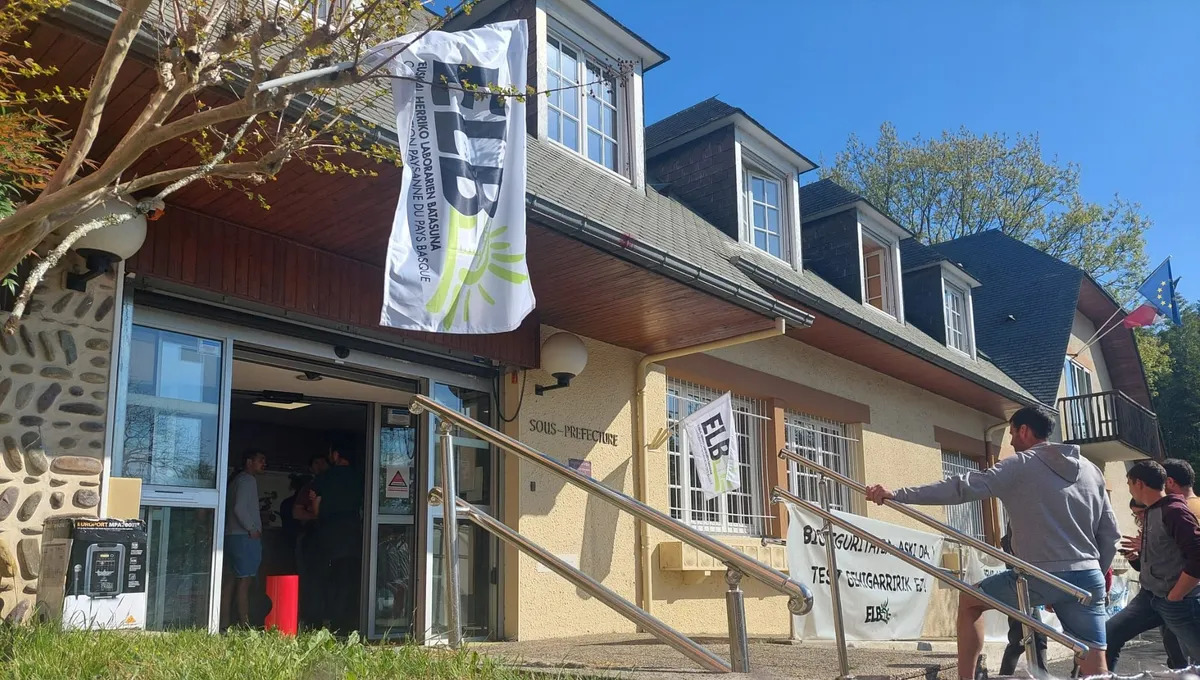

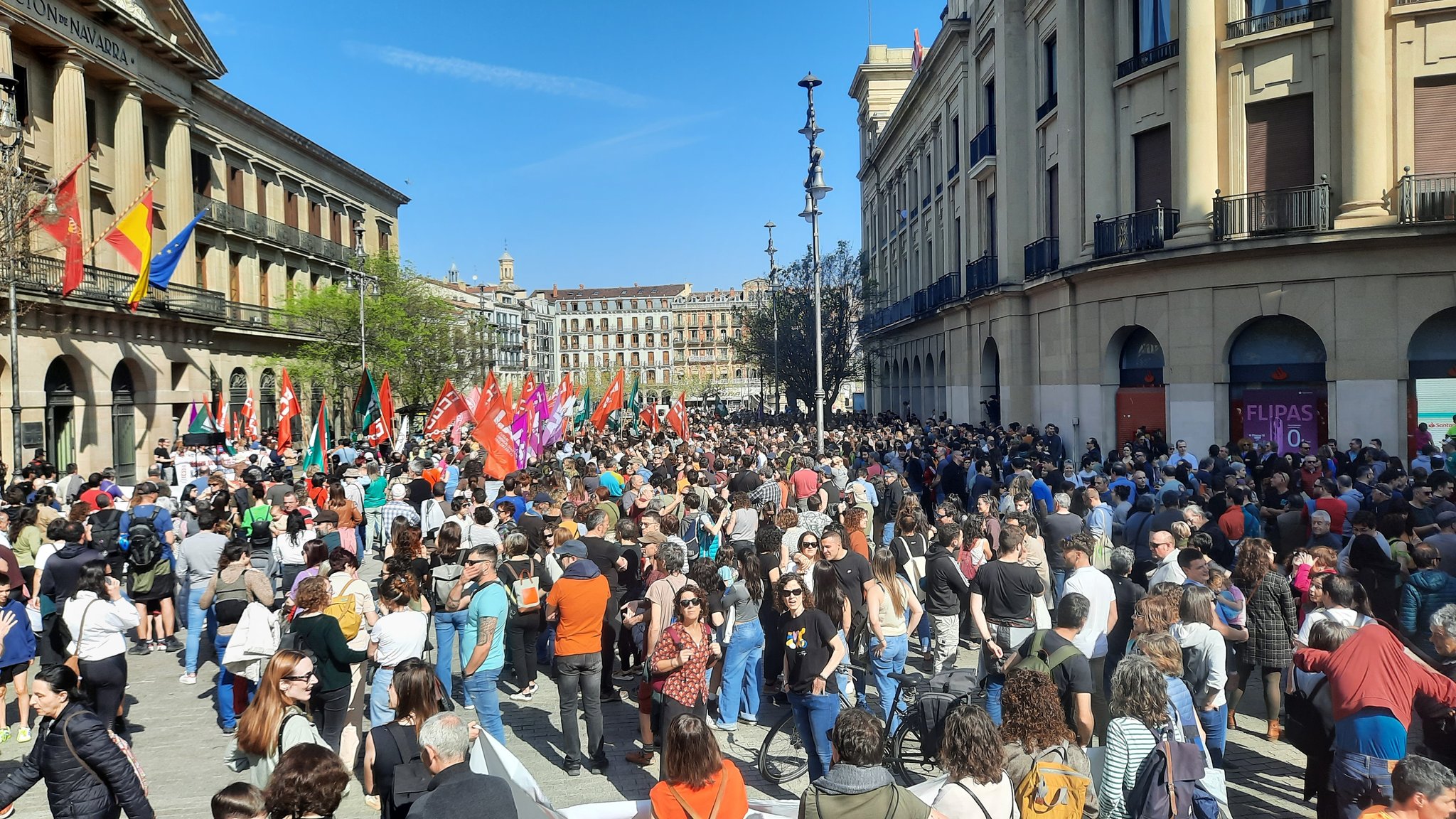





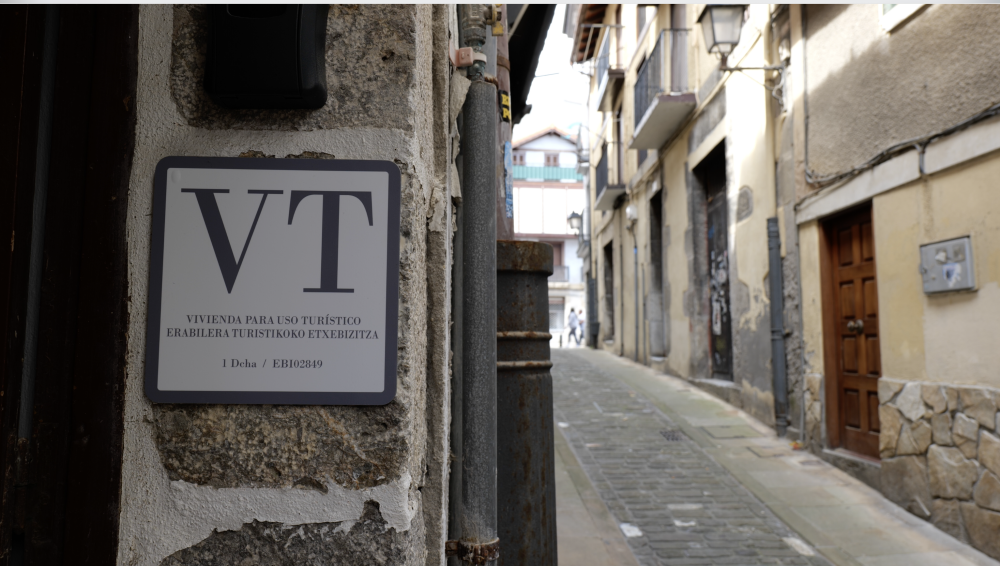
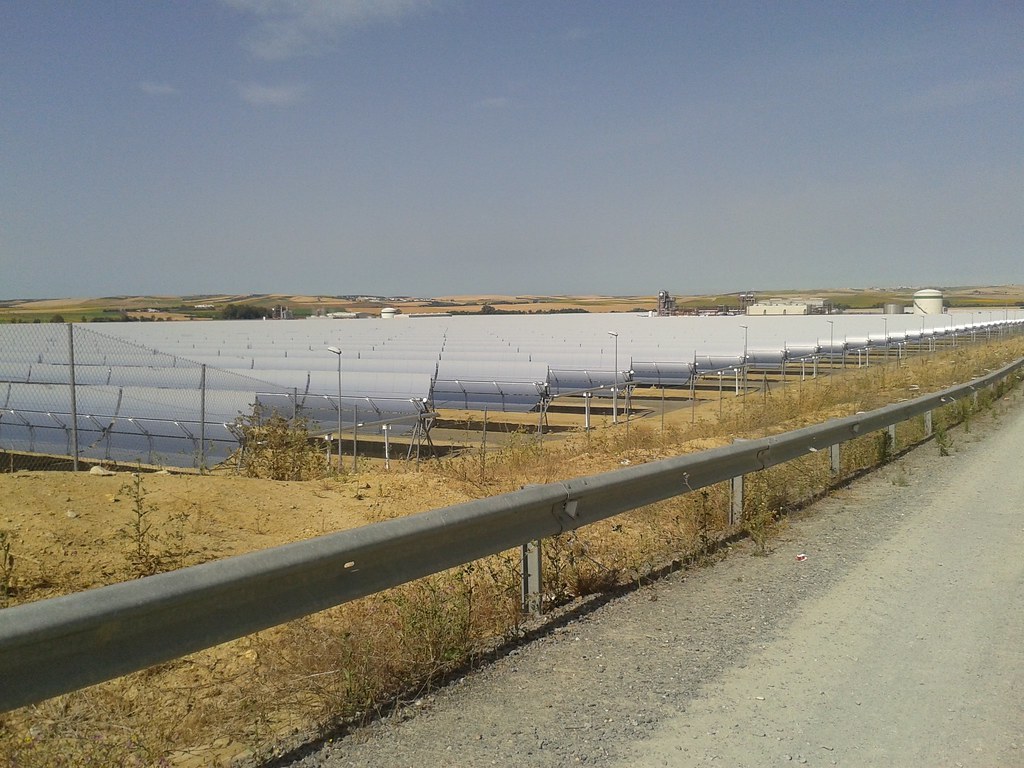

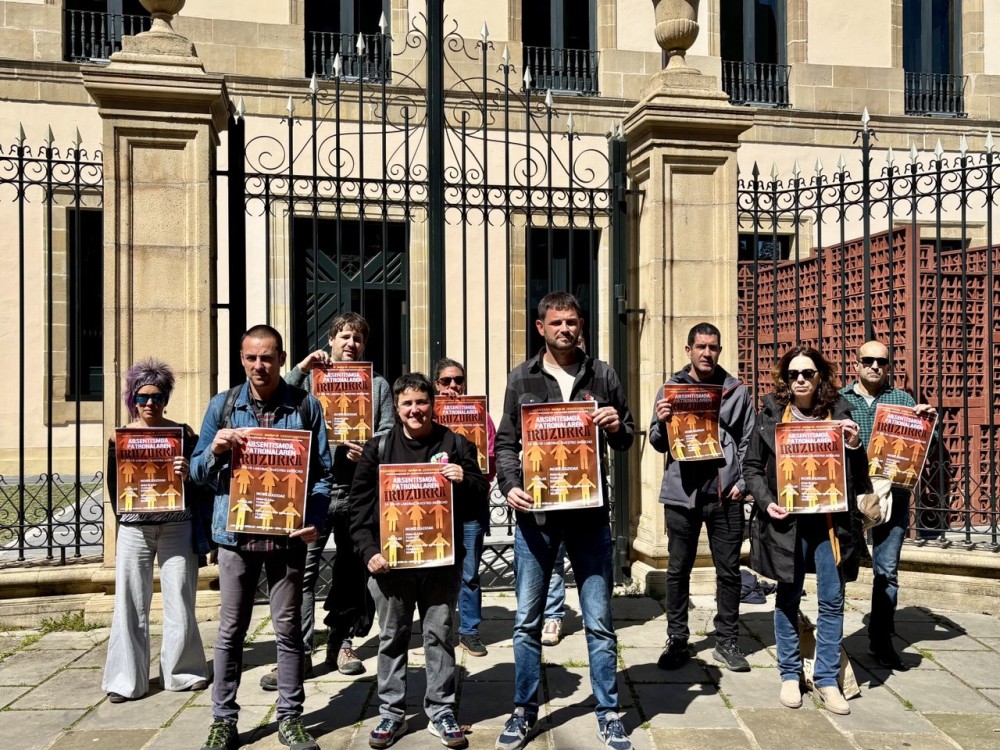
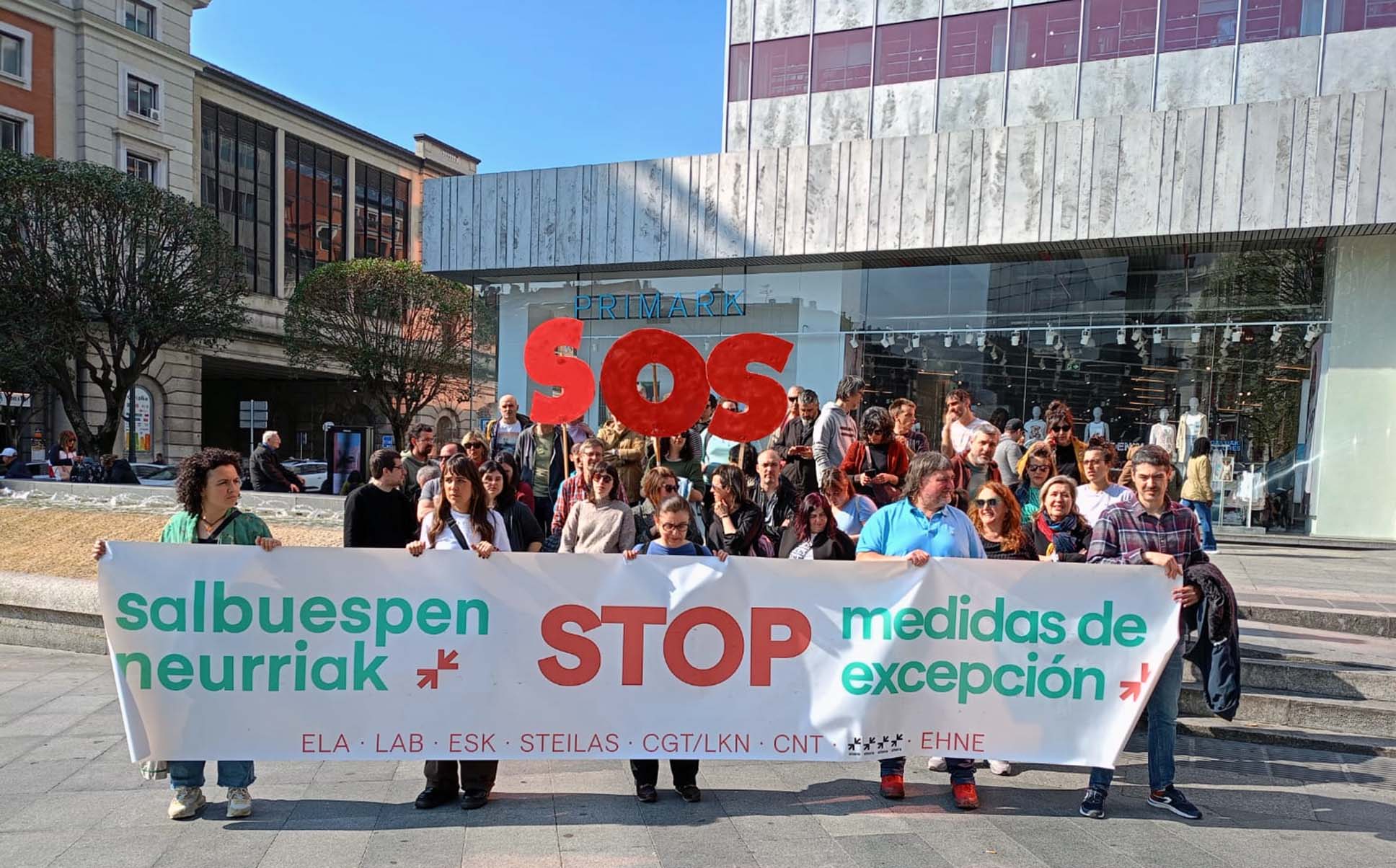
.jpg)